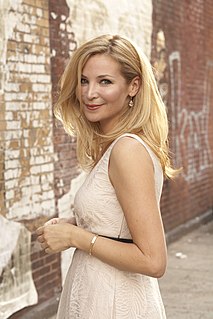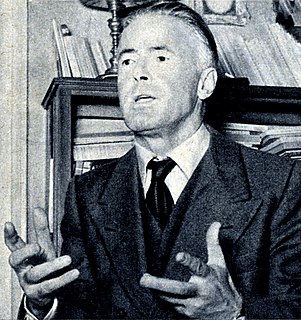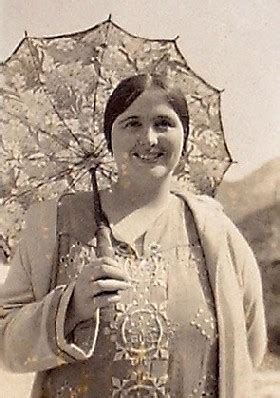A Quote by William Golding
I mean, if we're concerned genuinely with writing, I think we probably get on with our work. I think this is very true of English writers, but perhaps not so true of French writers, who seem to read each other passionately, extensively, and endlessly, and who then talk about it to each other - which is splendid.
Related Quotes
Perhaps the rediscovery of our humanity, and the potential of the human spirit which we have read about in legends of older civilizations, or in accounts of solitary mystics, or in tales of science fiction writers - perhaps this will constitute the true revolution of the future. The new frontier lies not beyond the planets but within each one of us.
One nice thing about being a woman in Hollywood is that the women tend to be very close-knit. All of us writers and directors know each other and cling to each other for safety and support, and it's really a completely different vibe than the men experience out here, where they're all trying to murder each other.
I used to do miserably in English literature, which I thought was a sign of moral turpitude. As I look back on it, I think it was rather to my credit. The notion of actually putting writers' words into other words is quite ridiculous because why bother if writers mean what they mean, and if they don't, why read them? There is, I suppose, a case for studying literary works in depth, but I don't quite know what 'in depth' means unless you read a paragraph over and over again.
My writing process is very feedback based - I listen to the audience. I try to understand what's connecting, what's not connecting... and then rewrite, and rewrite, and rewrite. Chris Gethard and I have been on the road a lot together. When we get on the bus at night, we talk about the jokes that didn't work and the joke possibilities that could work. I think this is a little different from other writers.
I think we are afraid of each other when it comes to sex, because we read so much about sex, we talk so openly about sex, we see movies and we read books; but when we are face to face with someone else, we forget our individual patterns; that we are unique. So we try to repeat other people's patterns, according to what we seen and what we heard. So most of us are very frustrated, because we don't accept our individuality as far as sex is concerned.
Read a lot. But read as a writer, to see how other writers are doing it. And make your knowledge of literature in English as deep and broad as you can. In workshops, writers are often told to read what is being written now, but if that is all you read, you are limiting yourself. You need to get a good overall sense of English literary history, so you can write out of that knowledge.
Writing can be such a lonely endeavor that I do think community is also important.Meeting at cafes and exchanging work and reading to each other and giving each other little bits of encouragement and feedback and thoughts, I think that's an incredibly rich experience because what it does is it gives you a sense of community but also purpose. If I know I'm going to meet you in a cafe next Tuesday, I'm going to write something that I can hand to you. Discipline is such a challenge for so many writers and so I think that that's a key benefit of being in a group.




































